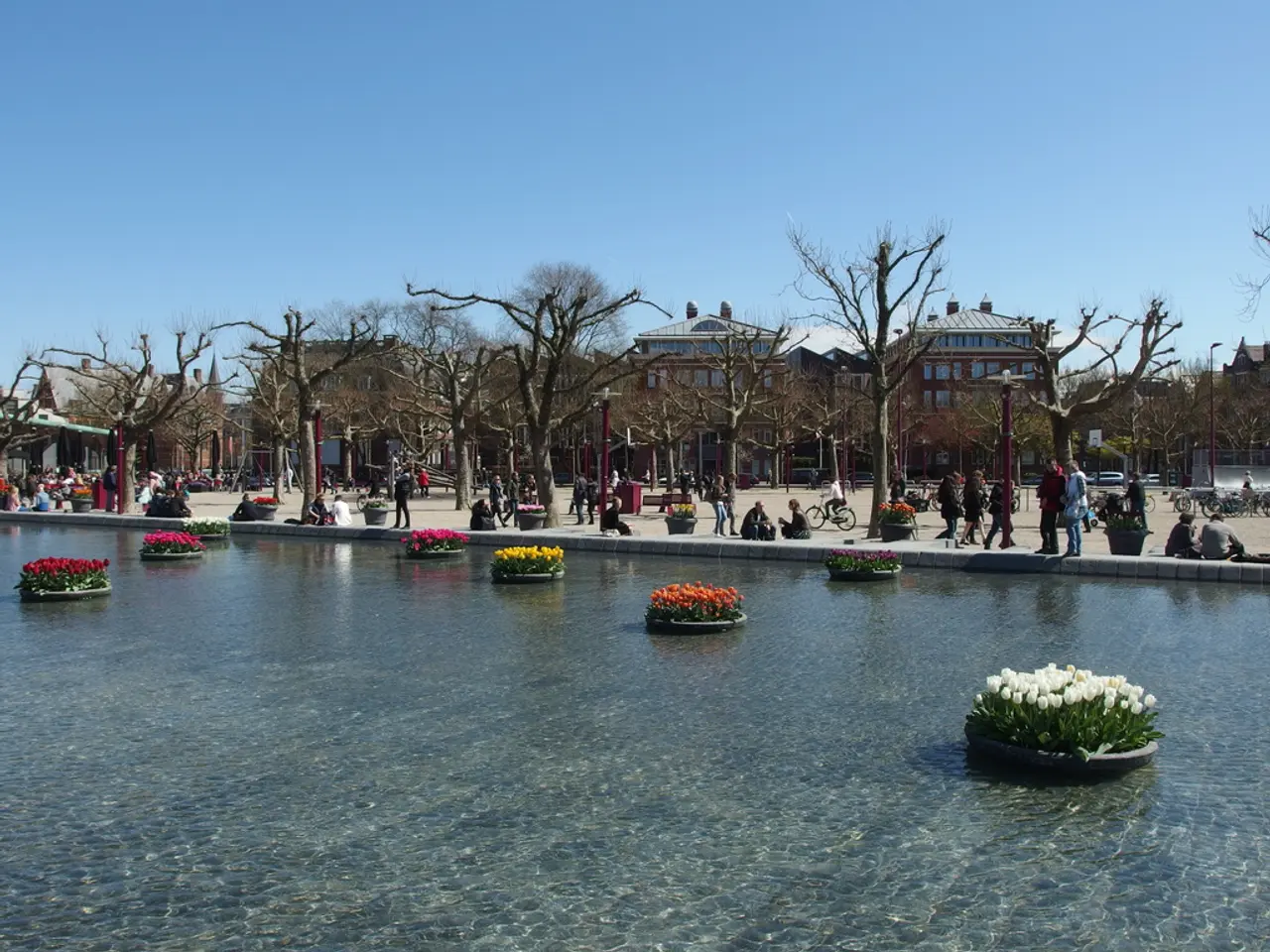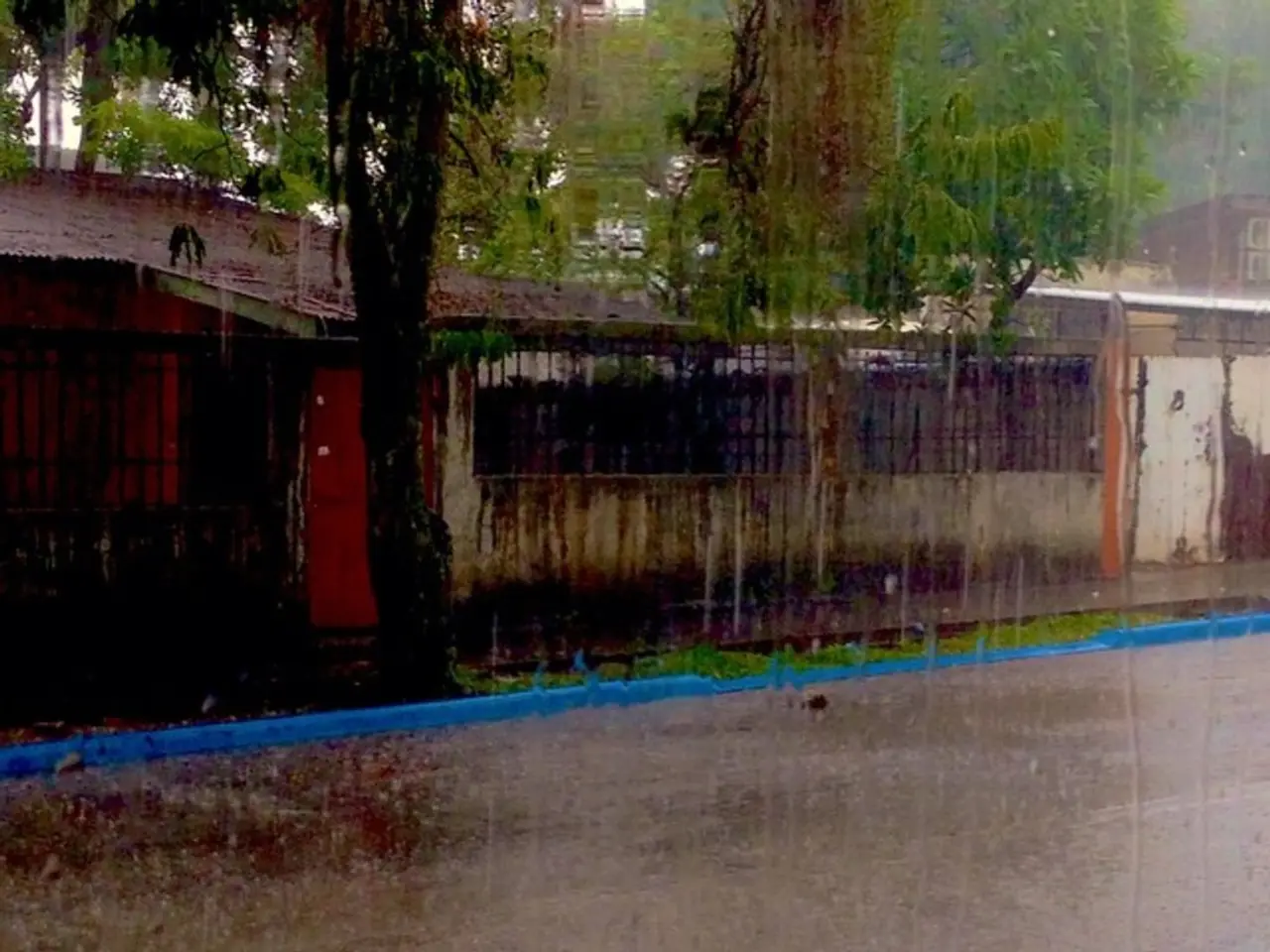Moscow Experiences Heavy Downpour Following Extreme Heatwave
In the heart of July 2025, Moscow has been hit by a series of extreme weather events, marking a significant impact on the city. The mercury soared to unprecedented levels, breaking records last seen in 1996, with temperatures reaching and exceeding 35 degrees Celsius.
On July 10, the city sizzled at 33.9 degrees Celsius, surpassing the previous record of 33.4 degrees Celsius set in 1996. Forecasts predicted temperatures to climb even higher, reaching up to 36 degrees Celsius. This heatwave was 7-8 degrees above the climatic norms for the region, and although temperatures were expected to decrease to around 25-26 degrees in the following days, they were accompanied by possible rain.
However, the respite from the heat was short-lived as Moscow was also hit by powerful storms. The second half of July saw increased cloudiness and chances of thunderstorms, along with intermittent rain. Despite July being traditionally the wettest month in Moscow, 2025 saw precipitation levels below normal, about 13% of the climatic norm, despite occasional storms.
The storms battered the city, leading to incidents of uprooted trees. Though specific flooding events are not detailed, the presence of heavy rains and storms likely caused localized flooding issues, as is typical in such weather conditions. Heavy rains and fallen trees likely contributed to traffic delays and disruptions, especially since powerful storms swept through the capital just days before the peak heat.
The flooding incident was reported at the 16th kilometer of the MKAD in Moscow, with emergency services on the scene. A tree fell onto the road in the Odintsovo district, causing temporary traffic disruptions. Preliminary reports indicate no injuries due to the weather-related incidents in Moscow.
Residents sought ways to cope with the heat by flocking to parks, public squares, and fountains to cool off. There was a notable increase in sales of fans and air conditioners. Health officials warned the public, especially vulnerable groups like people with cardiovascular or respiratory conditions, to take precautions against heat-related illnesses and to seek medical help if symptoms such as dizziness or nausea occurred.
In summary, the recent weather in Moscow has combined record-breaking heatwaves with powerful storms, resulting in urban challenges including uprooted trees, probable localized flooding, and traffic disruptions, while also raising public health concerns amid the extreme temperatures. Drivers are advised to choose alternative routes due to the flooding in Moscow.
Environmental scientists analyzed the impact of the extreme weather events in Moscow, noting the record-breaking heat waves and subsequent environmental changes. The sudden increase in temperature, coinciding with the environmental-science professionals' study of the city's climate, highlighted the ongoing importance of weather research and adaptation practices.








